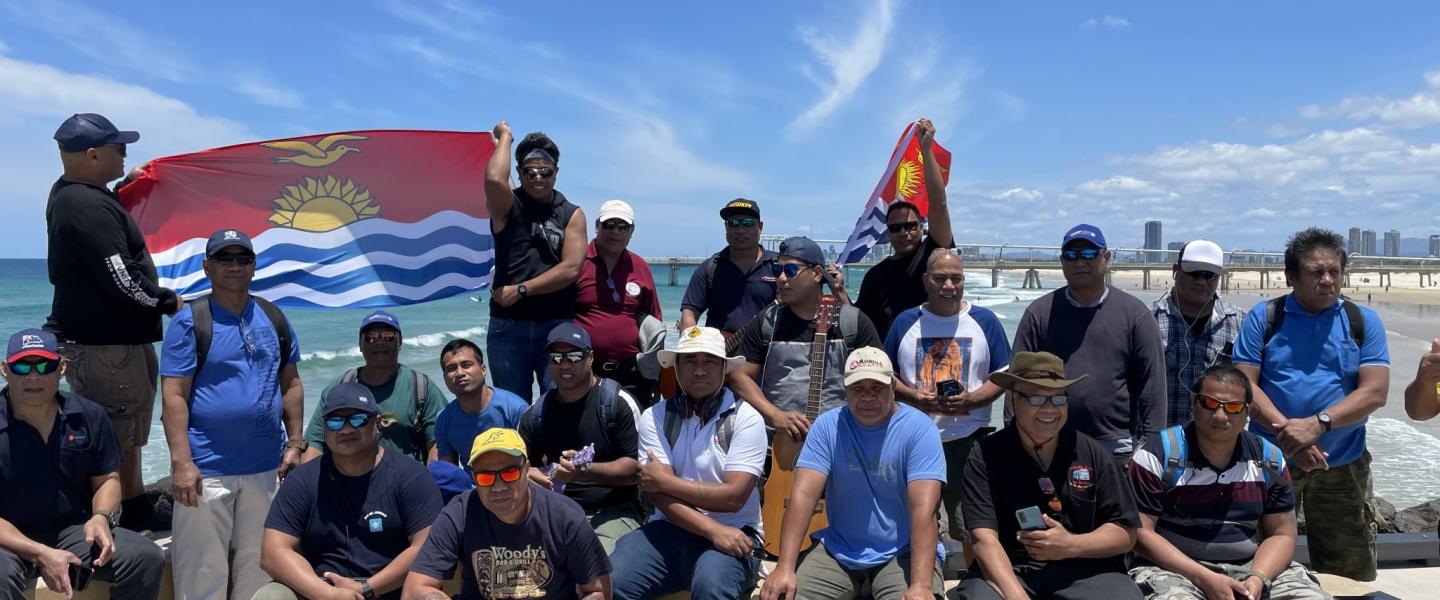Press Release
22 November 2021
London. UK. / Brisbane. Australia. As the effort to repatriate a stranded community of I-Kiribati seafarers accelerates, pressure is mounting on the Kiribati government to facilitate the return of its citizens.
The seafarers were displaced by the international travel restrictions enforced during COVID-19, which prevented their return to the Pacific Island nation at the end of their contractual work at sea.
Danish shipping company Maersk, one of the main employers of Kiribati’s seafarers, has attempted to negotiate potential passage home with the Kiribati government, but has so far had little success despite participation from the International Labour Organization and International Maritime Organization.
Speaking to Human Rights at Sea, Maersk reported that the government’s reluctance to permit full repatriation has resulted in a company decision to transfer crewmembers from Australia to Fiji, to complete the final leg of the journey via chartered vessel.
“The Government in Tarawa [the capital of Kiribati] have repeatedly refused our suggestions, including covering all costs, to repatriate the seafarers stranded in Brisbane directly from Australia to Kiribati by plane,” Maersk said.
“The Kiribati Government is only prepared to entertain a conversation about sailing the stranded seafarers from Fiji to Kiribati. The Government of Kiribati is presently in negotiation with a cruise line about providing this transport.
“While we do not find this solution optimal and would prefer to repatriate our seafarers by plane both from Fiji and Australia, we have offered to cover the cost of this cruise vessel together with other shipping companies employing seafarers from Kiribati.
“Hence, to secure our seafarers stranded in Brisbane will be reunited with their families as soon as possible, we will have to repatriate this group of seafarers via Fiji.”
Seafarers’ concerns
Though geographically closer to Kiribati, Fiji has effectively become a holding area for 165 I-Kiribati seafarers who were unable to complete their journey home earlier in the pandemic due to Kiribati’s strict border closures. The crewmembers stranded in Fiji no longer receive basic living wages.
Given the current circumstances in Fiji, the possibility of relocation has fostered apprehension among the seafarers in Brisbane, who continue to receive these basic wages while in Australia.
They have expressed concern that transfer to Nadi will place them in an uncertain and financially desperate situation reflecting that of their colleagues.
Bwerentetaake Toanuea, spokesperson for the group in Brisbane, said the crewmembers fear they will become stranded in Fiji if plans fail to eventuate.
“We can see the problem that’s going on with our brothers who have been stranded in Fiji. They suffer a lot. We always hear a lot of complaining, and we don’t want to be a part of that,” he said.
“Our government… will not allow this direct flight from Brisbane to Tarawa. It’s a big problem between the company, our government, and us. It’s very complicated.”
The logistics of repatriation
Outside of Fiji, and in addition to the 39 I-Kiribati seafarers stranded in Australia, there are currently 37 I-Kiribati crewmembers in Germany, 12 in Indonesia, and 15 in South Korea.
With a large number of internationally dispersed seafarers requiring repatriation to the remote island nation, HRAS understands that the Kiribati government and shipping companies are considering Brisbane a safe transition port.
However, welfare sources have informed HRAS that, although shipping companies are prepared to cover the cost of travel to Australia, they will only do so if passage from Brisbane to Kiribati is guaranteed.
Living expenses are particularly high for I-Kiribati seafarers staying in Australia, and the possibility of additional crewmembers becoming stranded in Brisbane presents a significant logistical and financial risk.
Welfare sources in Australia have also expressed concern that the risk will be amplified by the gradual reopening of Australia’s state and international borders, which coincides with the rising number of COVID-19 cases in some parts of the world.
They explained that now is the opportune moment to secure and expedite the repatriation of Kiribati’s seafaring community, but without support from the Kiribati government, the strategy cannot come into effect.
All I-Kiribati seafarers stranded internationally have been fully vaccinated, which is a crucial step toward their eventual return home.
ENDS.
